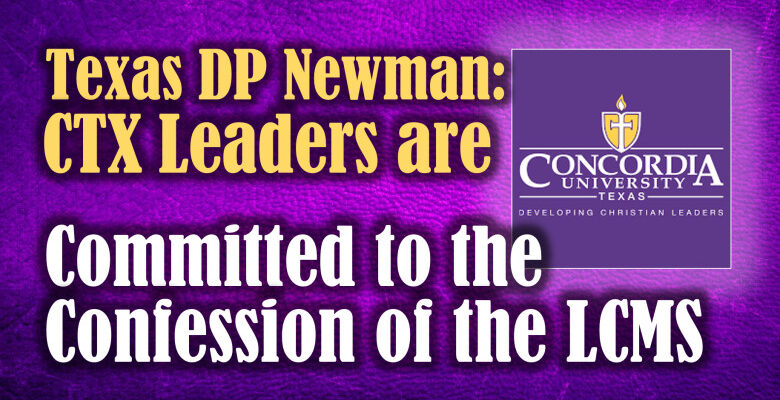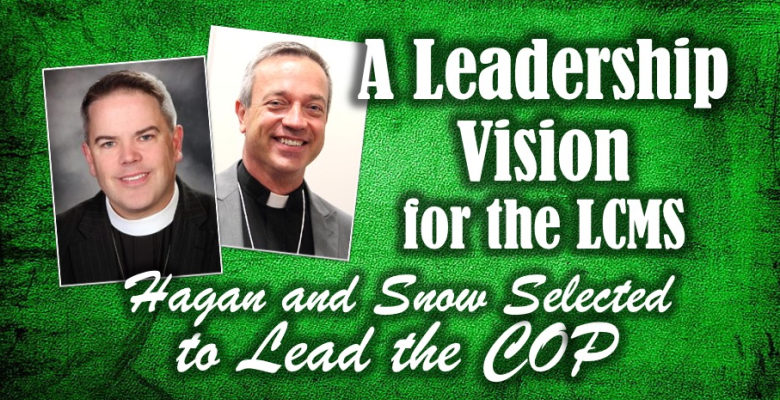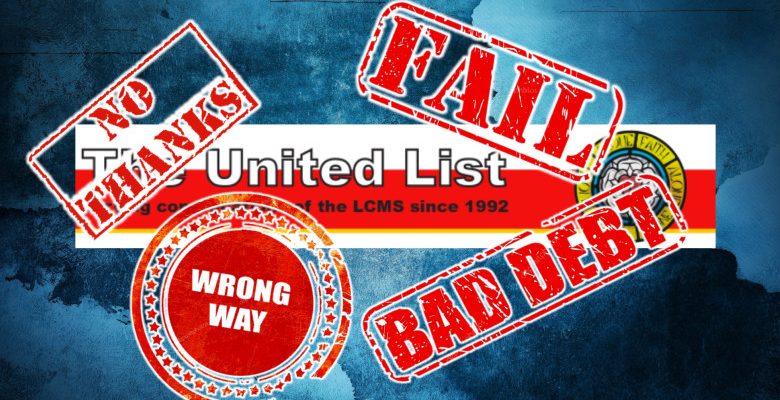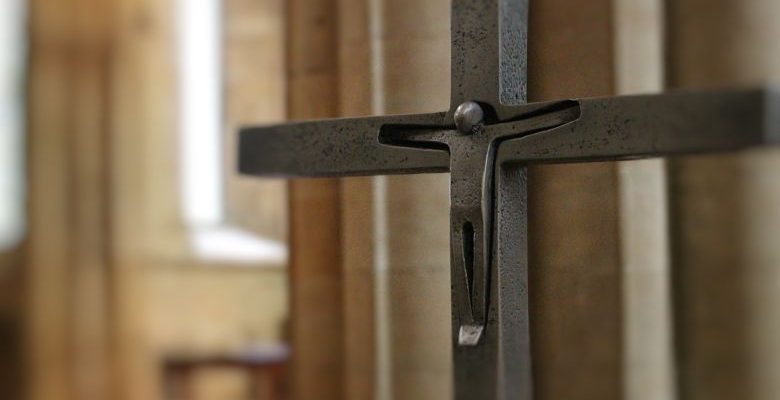Our Congregations — Our Synod applauds the COP’s open session conversation about CTX. Synod’s BOD could learn from this. Executive sessions don’t build understanding, support of Synod members, and trust. Transparency does.


Our Congregations — Our Synod applauds the COP’s open session conversation about CTX. Synod’s BOD could learn from this. Executive sessions don’t build understanding, support of Synod members, and trust. Transparency does.

Newman reports the CTX leaders are committed to the confession of the LCMS. Their recent vote is about governance, not leaving.

COP elects Lee Hagan and Richard Snow as leaders, providing a renewed emphasis on utilizing the God-given diversity of gifts to His Church, a focus on Word-directed decision-making, and collegiality. Their leadership vision reflects it.

The Constitution and By-laws of the Synod describe a very important working relationship between the Synod President and District Presidents. Sadly, during the past eight years, President Harrison broke that relationship. It’s time for a change in Synodical leadership.

LCMS Boards populated by members whose names were on the infamous United List were elected at a 90% rate at the 2016 Milwaukee convention. It’s been eighteen months since their elections. What do we know now about their decisions? We know United Listers have increased centralized control. Contrary to our Constitution and Bylaws, they’ve handed ecclesiastical supervision to one man to enforce a dark conformity over congregations, pastors and rostered workers. In May, 2017 United Listers on the LCMS Board gave powers to the Synod President which radically changed Synod. Membership is plummeting — 68% faster than ever before. How did this hierarchical, centralized takeover of our Lutheran church happen? A United Lister named Sias became Secretary at Milwaukee. He disagreed with decades of precedent and wrongly advised the United Lister Board it is OK to take ecclesiastical authority away from District Presidents (DPs). Many brave DPs sent public letters

Last summer, District President (DP) Larry Stoterau of the Pacific Southwest District wrote a powerful pastoral letter in opposition to the recent Ecclesiastical Supervision bylaw change. You can download a copy of it here. Several District Presidents have addressed their concern with the centralization of control in the Synodical President’s office, especially as it relates to the recent changes in the area of ecclesiastical supervision. Pacific Southwest District President Larry Stoterau’s letter to his District clearly outlines their cause for concern. IT IS TIME TO ACT More and more LCMS leaders are voicing their opposition to the unconstitutional change to Bylaw 2.14. First, Council of Presidents Chair, Texas DP Hennings stood his ground against this dangerous development in Synod. DP Hennings was voted by a majority of the Council of 35 District Presidents, the Synodical President and the Regional Vice Presidents as their trusted leader. You can read the Congregations Matter article

With a letter to the congregations and rostered members of his district, District President (DP) John Denninger of the Southeastern District joined the growing number of LCMS leaders voicing their opposition to recent and unconstitutional bylaw changes giving final ecclesiastical supervision to President Harrison. At President Harrison’s request and Secretary Sias’ hand, the United List majority of the Synod Board of Directors (BOD) wrested the constitutional, historic responsibility of ecclesiastical supervision from District Presidents. Without vote or action of the Milwaukee Convention, the BOD gave this responsibility to one man. The President of Synod now is the de facto ecclesiastical supervisor of the LCMS. Harrison has taken ecclesiastical supervisory decisions away from our 35 District Presidents. He relocated those life-changing decisions to his own desk inside the secretive International Center in St. Louis. Wrested Power Over Congregations First, Council of Presidents Chair, Texas DP Hennings stood his ground against this dangerous

Last Friday District President (DP) Ken Hennings sent an unprecedented, public letter to the rostered members of his district. The letter explains the drastic change that the United List majority of the Synod Board of Directors adopted in May regarding ecclesiastical supervision. But Hennings did more. The letter explains why District Presidents in Synod are no longer the final ecclesiastical supervisors of churches, pastors, teachers, DCEs and other church workers. Our new, changed reality? Synod President Harrison has taken that job for himself. District President Hennings clearly warns of the consequence this bylaw change brings: “It is necessary that I personally make you aware of the significant changes to the process of ecclesiastical supervision in our church body. The board of directors of the Synod has adopted bylaw changes that give the ultimate responsibility for your (and your congregation’s) ecclesiastical supervision to the President of the Synod. In other words, if

“Among You It Will Be Different” It was a simple request. A mother asking for positions of power and influence for her sons. Then it all broke loose. “You don’t know what you are asking,” Jesus said. The other disciples became indignant with James and John. And the Master settles the issue with these words: 25 But Jesus called them together and said, “You know that the rulers in this world lord it over their people, and officials flaunt their authority over those under them. 26 But among you it will be different. Whoever wants to be a leader among you must be your servant, 27 and whoever wants to be first among you must become your slave. 28 For even the Son of Man came not to be served but to serve others and to give his life as a ransom for many.” Matthew 20:25-28 (NLT) Jesus does not need political posturing. He needs

Congregations Matter© believes we need a change of leadership in the LCMS. Either the current leaders need to change the way they are doing things — or we need new leaders. Four Reasons for a Change of Leadership There is a lack of cooperation with and support of our district elected leaders — especially our District Presidents. Congregations don’t matter — neither do our District Presidents. The centralization of power in the office of Synodical President sought by our current administration is dangerous for our Synod now and in the days to come. This is an unprecedented power grab in the history of our church. At our last convention, President Harrison showed his lack of trust for the Boards of Regents, theological faculties of our Concordias, and our District Presidents (and the congregations that elected them) as he became the agent of approval of all theological faculty Synod-wide. In addition, at the